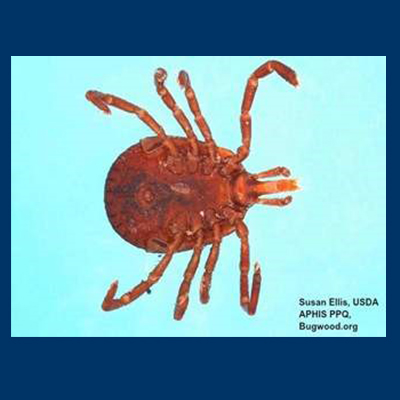2020 Summer Pest Forecast
Hotter weather generally signals the start of a new season and with rising temperatures, you can expect an increase in pest activity. For most people living across the U.S., annoying insects can be a year-round nuisance. However, some pests tend to be more active in the hot summer weather where they flourish abundantly. Massey Services covers two distinct regions – the Southeast and South Central United States, where annoying pests can be found year-round in just about every corner.
What pests can I expect to see this summer?
According to the National Pest Management Association (NPMA), the Southeast is expected to experience near or slightly above average temperatures. The increase in temperatures could potentially bring a rise in cockroaches, ants and mosquitoes.
Moreover, the NPMA predicts a warm and wet summer for much of the South Central region bringing an increase in pest activity including ticks and cockroaches.
Here are some common pests you may run into this summer:
AMERICAN COCKROACH
Facts:
- Largest house-infesting roach
- Primarily live outdoors but move indoors when they experience a food shortage or change in climate
- When inside, they make their way into the kitchen, bathroom, basement or laundry room in search of food and water
- Can live a week without its head

GERMAN COCKROACH
Facts:
- Most common cockroach found worldwide
- Prefer warm (70 degrees) and humid places
- Usually found in residential and commercial kitchens and bathrooms
- Any crack or crevice near a food or water source can harbor cockroaches

LONESTAR TICK
Facts:
- 3-host tick with each stage requiring a different host (preferably humans)
- Makes contact with a host by crawling up on the tips of low-growing vegetation and waiting for a human or animal to pass by
- Cannot survive long exposure to the sun and therefore, are typically found in shaded areas

PHARAOH ANTS
Facts:
- Feeds on sweets, oils and proteins – including other dead insects
- Nests are usually located in inaccessible areas such as wall voids, behind baseboards, in furniture and under floors
- These ants can be found outside in shaded areas or under debris

BLACK CARPENTER ANTS
Facts:
- Do not eat wood but chew through it to create nests
- Come indoors by way of cracks around doors, windows or through plumbing and electrical penetrations in the home
- Build their nests outdoors in various wood sources (i.e., tree stumps, rotting fence posts, old firewood)

ASIAN TIGER MOSQUITO
Facts:
- Are active year-round in warm regions
- Feeds during daylight hours
- Females lay eggs in items that hold at least ½ inch of stagnant water (i.e., bird baths, flowerpots, tires)

CRAZY ANTS
Facts:
- Get their name from the workers’ habit of running in erratic, jerky manner when searching for food
- Usually like to enter homes after rainfall; very active during spring, fall and summer months
- Nests are usually underneath floors or carpeting, in potted pants and in wall voids
- Nests are shallow and commonly found in soil under objects or next to foundations

Given the pest forecast for the summer, what are some things that you can do to protect yourself against these aggravating pests?
• Inspect Your Property: Take a walk around your property to identify areas that may be conducive to mosquitoes. Eliminate sources of standing water such as in birdbaths, flowerpots, grill covers and baby pools and screen all windows and doors, repair even the smallest holes that could serve as entry points for pests.
• Think Smart: To fight against ticks, clothe yourself protectively. Wear long-sleeved shirts; keep shirts tucked in; wear long pants and keep them tucked into socks when hiking or outdoors in tall grassy areas. White or light clothing is recommended as it is easier to spot any ticks. Do not place soiled clothing on your bed because ticks could transfer to bedding.
• Be Clean: Roaches are most frequently spotted near garbage cans and refrigerators. Be sure to seal garbage cans, dispose of trash properly, and clean up any crumbs or food that is left out.
• Avoid Excessive Use of Fragrances: Wasps are attracted to smell. If spending long periods of time outdoors, avoid excessive use of perfume or cologne, as yellow jackets and other stinging insects are attracted to sweet-smelling fragrances. When possible, choose unscented shampoos, soaps, lotions and sunscreen.
For more information on pest control, please contact Massey Services or complete the form below!